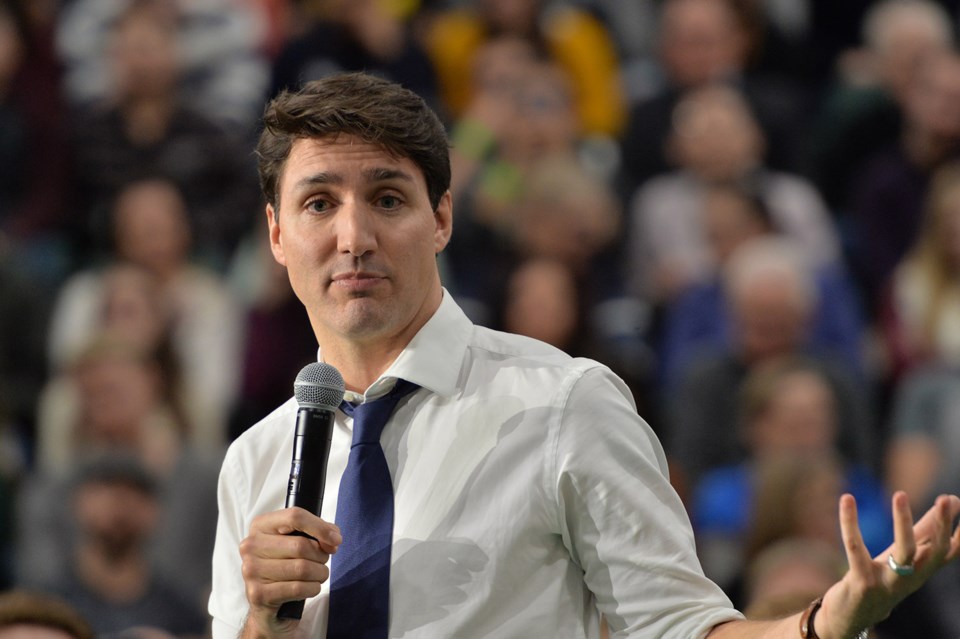Over lunch the other day, friends who just landed from Los Angeles queried me about Canada’s travel declaration form, the part that asks if the traveller has “visited a farm or will be going to a farm in Canada.”
“When you lived on a blueberry farm, what would you say?” they asked.
When I once answered “yes,” the Canada Border Services guard grilled me. At the end, I learned the question is about biosecurity, not blueberries. It pertains to farms with livestock.
Yet, the declaration card fails to mention that single clarifying word, which could save folks in animal-free agriculture from hassle and create some efficiencies at border entry points.
A few days later, I saw another basic communication failure on a federal form. The absence of two simple words on Service Canada’s death benefit application creates challenges for grieving loved ones and contributes to a system’s inefficiencies. I’m seeing firsthand a young man, barely an adult, who lost his mom and is now navigating a returned application.
A death benefit is available to only one person who must belong to one of four categories, but nowhere on the application does it make clear the categories are in priority sequence. In other words, if you’re the next of kin, you’re last. Three categories before you get the right of first refusal.
Service Canada will stall your application until you prove why other eligible individuals are disqualified or won’t apply for the benefit, and then you may have to prove your blood relationship with the deceased. None of this is stated on the application.
Searching for detailed instructions online makes little sense when two words, “priority sequence,” are all that are required on the application to potentially prevent a backlog.
There’s a reason bureaucracy is universally mocked. “Make work” creates inefficiencies and backlogs, advancing a narrative that civil servants are overworked, underpaid, and more hires are required to pick up the slack.
That’s just the kind of formula Prime Minister Justin Trudeau promotes because he can appear to rescue frustrated Canadians, while simultaneously building a happy voter base on the inside.
We recently learned that Trudeau increased bureaucratic jobs by a whopping 40 per cent since he took office in 2015. That’s an additional 98,268 public servants. And spending on public service operations jumped 32 per cent, hitting $115.9 billion in 2021-22. Of that figure, $60.7 billion was paid to personnel.
According to the Canadian Taxpayers Federation, more than 100,000 public servants make over six-figure salaries, to say nothing of the 802,000 raises between 2020 and 2022, and $1.3 billion in bonuses since Trudeau took office.
These ballooning costs to taxpayers come despite an abysmal public-service performance record. Last year, performance failures happened 60 per cent of the time.
Franco Terrazzano, federal director of the Canadian Taxpayers Federation told the National Post: “Canadians need a more efficient government, not a bloated government full of highly paid bureaucrats.”
Economics and Common Sense 101 fail Trudeau. Why he cannot see Canadian families struggling to feed and house their families – or that bureaucratic bloat has done nothing to improve services – is beyond me. Passport renewals come to mind.
When I read the Trudeau government also hired external services for an insane $12 billion in 2020-21, I wondered why none of the communication consultants in the bunch – and I’m certain there are plenty – haven’t suggested auditing government forms for clarity. It’s an easy fix, and even if it helps a little, it is better than nothing.
Meanwhile, the death benefits application to which I am referring has been in the system for more than four months. That’s the timeframe in which Canada commits to paying the benefit.
Renu Bakshi is a former long-time journalist who now works as an international crisis manager, leadership coach, and media trainer. She can be reached at renu@renubakshi.com.



